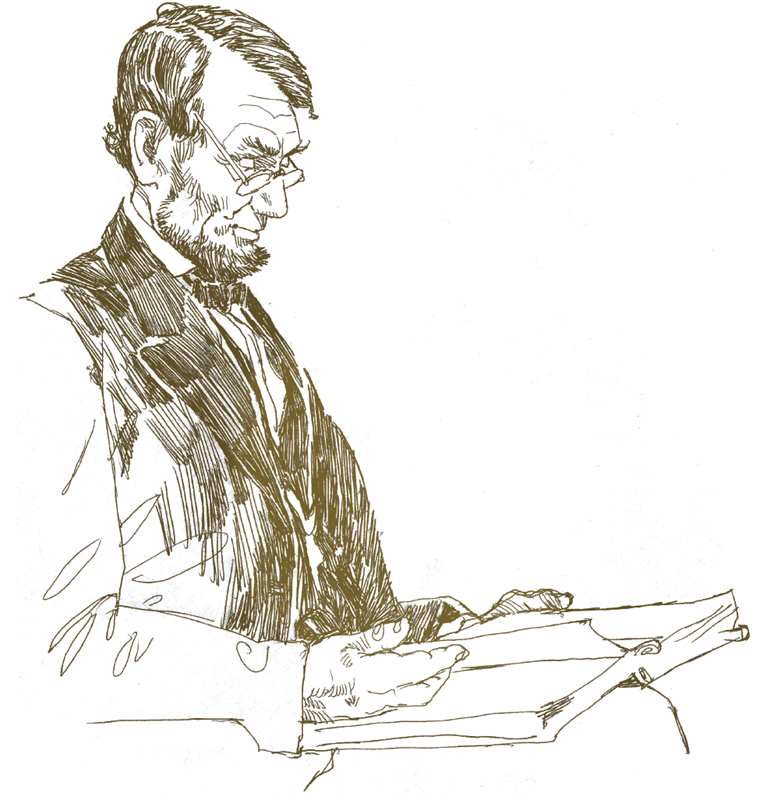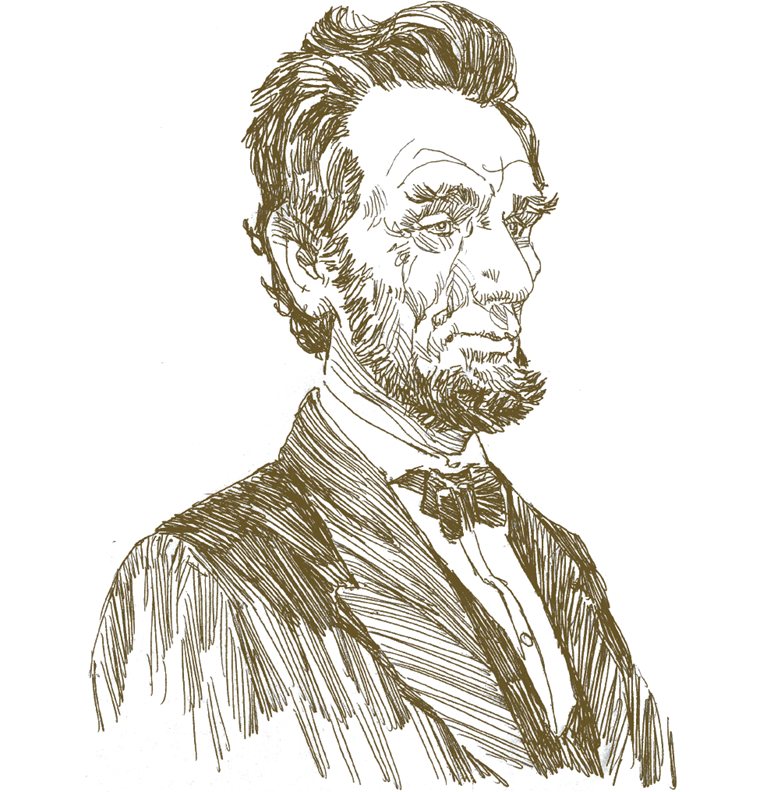
Here is an excerpt from an article written by Nancy Koehn for the McKinsey Quarterly, published by McKinsey & Company. To read the complete article, check out others, learn more about the firm, and sign up for email alerts, please click here.
* * *
Discernment
Lincoln had humble roots and no formal education. By age 25, he also had a growing interest in politics, and needed a career to feed that interest while helping him improve his lot. Lincoln began borrowing the law books of a mentor from the Illinois state militia who was an accomplished attorney and state legislator. He studied by himself. A neighbor remembered Lincoln “was so absorbed that people said he was crazy. Sometimes [while he was studying he] did not notice people when he met them.”

We do not know exactly how Lincoln sustained his determination to succeed. What we do know is that from an early age he practiced great discipline in relation to the things that mattered. Some of the discipline was focused on practical ends: toward preparing himself to be a lawyer or bettering himself intellectually. Some of it was directed at managing his emotions. As his prospects expanded, he worked to comport himself with greater dignity and forbearance.
He earned a reputation as an attorney who was skilled before a jury. Not because he mastered the laws of evidence or finer points of precedents; he did neither. Instead, this reputation rested on his ability to concentrate a jury’s attention on the few essential points of a case while conceding the less important issues to his opponent.
Lincoln’s ability to relate to juries provides a useful lesson about discernment. Leaders trying to accomplish a worthy mission have to cultivate the ability to identify the one, two, or three essential issues facing them at a given moment. It is never five or ten. It is always one or two—maybe three—issues that really matter. Having identified these, leaders must let the remaining concerns go, either by giving themselves permission to turn their attention away from all that is not central to their purpose or by handing peripheral issues to others, including an adversary. Being able to do this—to concentrate on the most important issues while relinquishing the rest—depends on a leader’s willingness to recognize two things: first, he or she cannot do it all, and second, by saying no to that which is not mission critical, one is actually saying yes to that which is.
Disappointment
Lincoln, like many other leaders, didn’t blaze onto the larger stage at a young age. And even when he began to build a legal and political career, his path was marked by as many failures as successes. The making of courageous leaders is rarely swift and smooth. Indeed, the setbacks and the times that Lincoln spent not being able to gratify his ambitions were important ingredients in the wisdom, resilience, and empathy that he nurtured and then used so successfully.

In 1846, for example, Lincoln was elected to the US House of Representatives by a large majority. During his first year in Washington, he devoted most of his attention to attacking Democratic president James Polk’s prosecution of the Mexican-American War. When his term in office ended in March 1849, Lincoln returned to Illinois. There, he discovered that his political stock was lower than when he had left. His party had failed to elect its candidate to the congressional seat that Lincoln was vacating, and many of his supporters blamed him and his unpopular position on the Mexican-American War for the defeat. Lincoln fell into a depression.
Although he returned to the practice of law, Lincoln found the allure of politics irresistible and set about helping to organize the young Republican Party in the state of Illinois. The central element of the Republican platform was opposition to slavery’s extension. Within Illinois, Lincoln became a leading spokesman for this position (while accepting its legality where it already existed). In contrast, many Democrats, such as the US senator from Illinois, Stephen Douglas, supported slavery’s expansion.
In 1858, Lincoln challenged Douglas for his US Senate seat. The race attracted national interest, partly because Illinois was regarded as a battleground state—not only in skirmishes between Democrats and Republicans, but also between supporters and opponents of slavery. Lincoln lost, and was deeply disappointed.
* * *
Here is a direct link to the complete article.
Nancy Koehn is the James E. Robison Professor of Business Administration at the Harvard Business School. This article is adapted from her book Forged in Crisis: The Power of Courageous Leadership in Turbulent Times. Copyright © 2017 by Nancy Koehn. Reprinted by permission of Scribner, an imprint of Simon & Schuster, Inc.